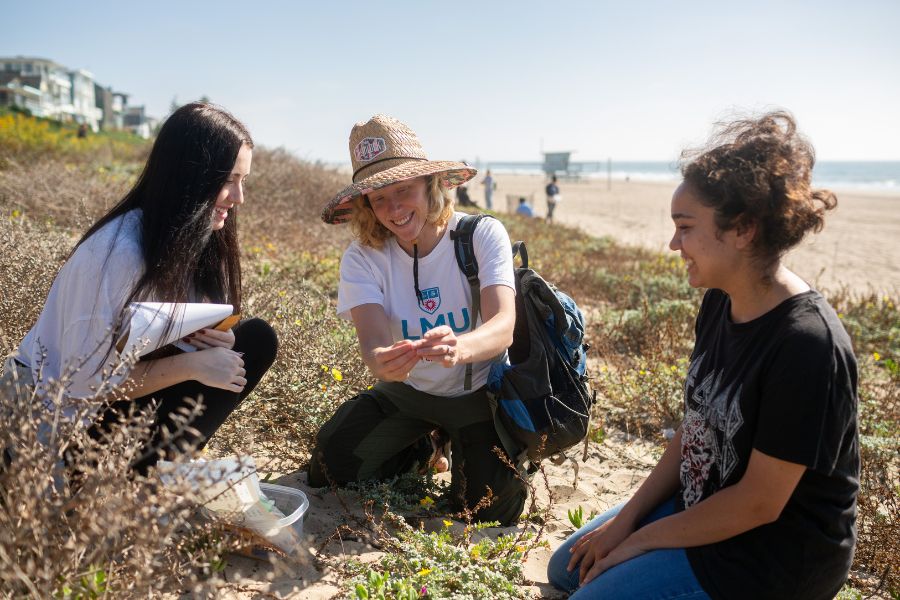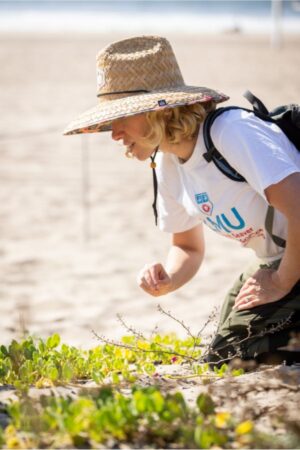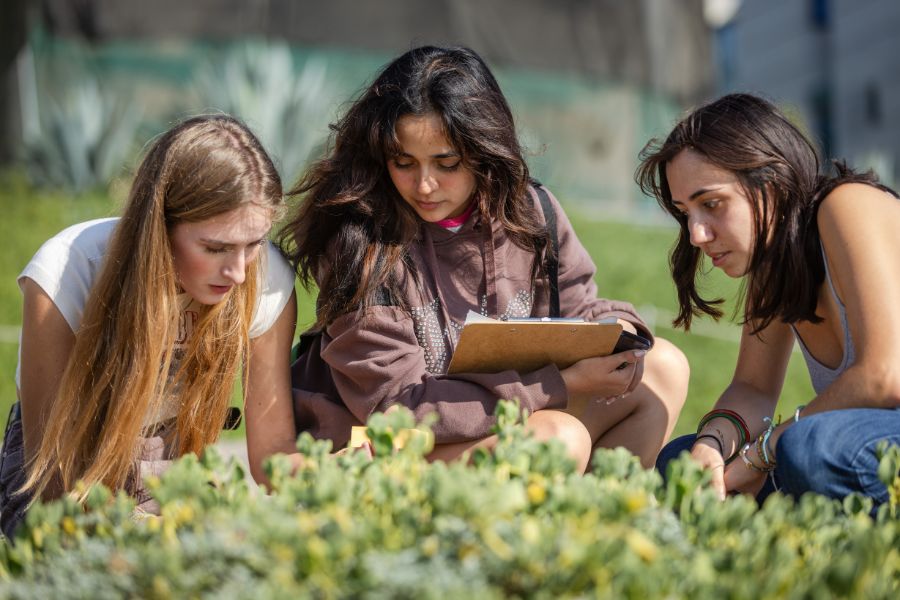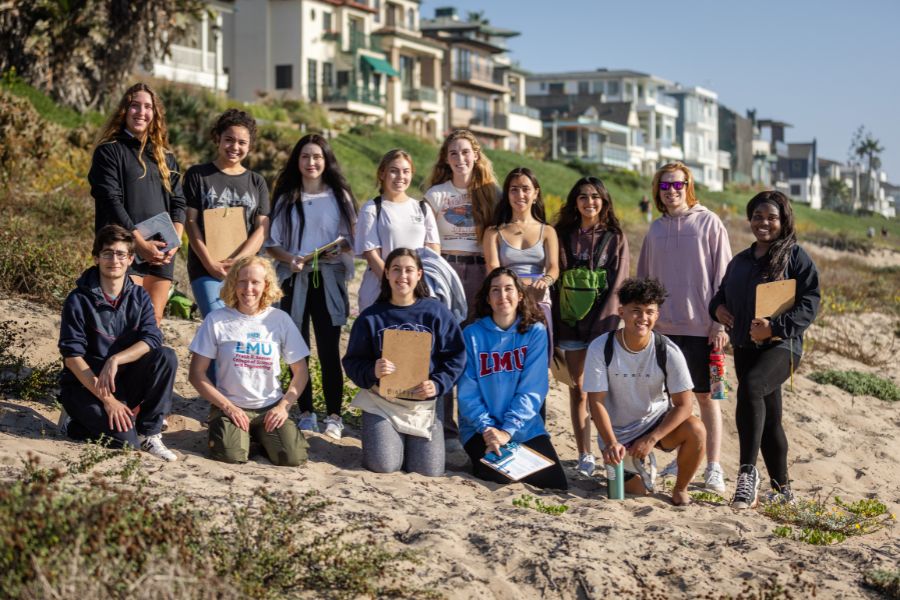
“My research is motivated by my fascination with flowering plants,” said Kate Eisen, assistant professor of biology, who joined Loyola Marymount University’s Frank R. Seaver College of Science and Engineering in the fall of 2023. “The mutualism that occurs between plants and pollinators is an incredible evolutionary response to the challenges plants face as rooted, generally immobile organisms. I find it fascinating that, to have other organisms assist with reproduction, plants have evolved a whole suite of traits to attract pollinators and ensure efficient pollination.”

Eisen, a plant evolutionary ecologist, currently teaches an upper-division evolution lecture and field lab course. “I joined LMU because I wanted to be in a place where teaching and research are valued,” she said. “I was drawn to the philosophy of educating the whole person because I recognize that who we are greatly informs the work we do, and it is important to recognize students not only as students of biology but also as fully contributing members of society.”
Eisen conducted her post-doctoral work in Sweden at Lund University researching the factors that contribute to variation in the floral scent of an arctic-alpine herb, Arabis alpina, from the genome to the biotic environment. She completed her Ph.D. in ecology and evolutionary biology at Cornell University, where her dissertation examined how species interactions affect the distribution and evolution of multiple floral traits in California native wildflowers. “I’m excited to have the opportunity to continue field lab work with my students researching this California native plant system located so close to campus and facilitated by LMU’s partnership with The Bay Foundation,” she said.
Seaver College and The Bay Foundation pool their expertise to collaborate on The Coastal Research Institute, which works to restore and enhance Santa Monica Bay and local coastal waters, contributing to a better understanding of global urban coastal resource management. Eisen’s research seeks to add a new dimension to The Bay Foundation’s efforts to restore the dunes of the Santa Monica Bay by understanding variation in plant traits of some of the plants the Foundation is seeding into the dunes.
“We want to see how the different plant traits affect interactions with pollinators and herbivores, both of which will help determine how successful the restoration efforts are,” she said.

Since her field lab coursework has a research component, she encourages students to further engage. She said this research experience also exposes students in various disciplines to what biology is like outside of a traditional lab. “Students who want to conduct research with me may expand on my field lab work,” Eisen said. “I have two students in my class who are also researching outside of class with larger projects building upon the current coursework.”
In addition to flowering plants, Eisen is passionate about creating a more diverse and inclusive scientific community. “Recognizing the lack of diversity in STEM is important,” she said. “My goal is to use the privileged identities I hold to enable students from all backgrounds to achieve their goals in and outside of science.” Eisen serves as vice chair of the American Society of Naturalists’ diversity, equity, and inclusion committee.




